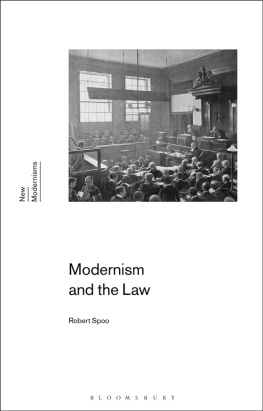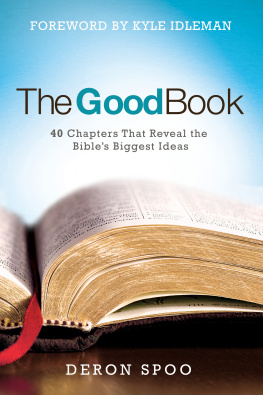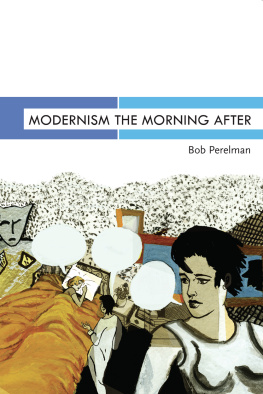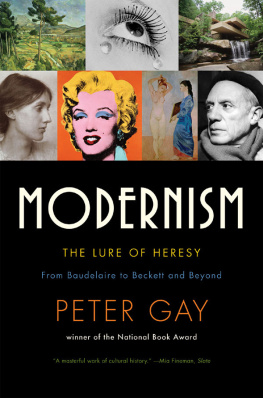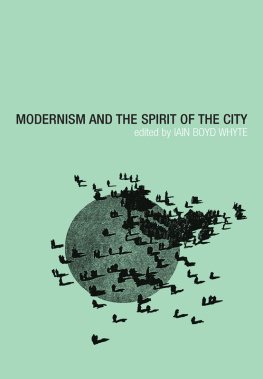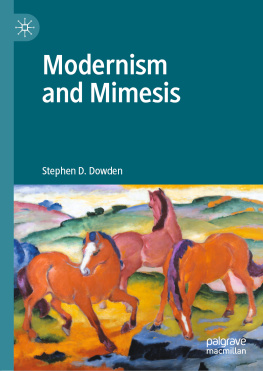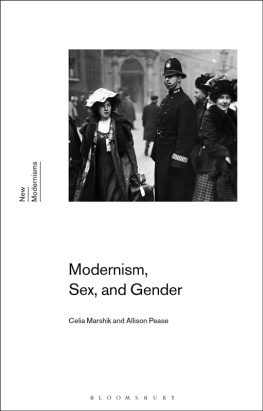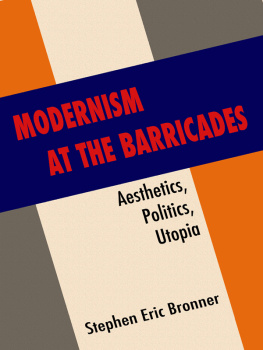Spoo - Modernism and the Law
Here you can read online Spoo - Modernism and the Law full text of the book (entire story) in english for free. Download pdf and epub, get meaning, cover and reviews about this ebook. publisher: Bloomsbury UK, genre: Detective and thriller. Description of the work, (preface) as well as reviews are available. Best literature library LitArk.com created for fans of good reading and offers a wide selection of genres:
Romance novel
Science fiction
Adventure
Detective
Science
History
Home and family
Prose
Art
Politics
Computer
Non-fiction
Religion
Business
Children
Humor
Choose a favorite category and find really read worthwhile books. Enjoy immersion in the world of imagination, feel the emotions of the characters or learn something new for yourself, make an fascinating discovery.
- Book:Modernism and the Law
- Author:
- Publisher:Bloomsbury UK
- Genre:
- Rating:4 / 5
- Favourites:Add to favourites
- Your mark:
- 80
- 1
- 2
- 3
- 4
- 5
Modernism and the Law: summary, description and annotation
We offer to read an annotation, description, summary or preface (depends on what the author of the book "Modernism and the Law" wrote himself). If you haven't found the necessary information about the book — write in the comments, we will try to find it.
Spoo: author's other books
Who wrote Modernism and the Law? Find out the surname, the name of the author of the book and a list of all author's works by series.
Modernism and the Law — read online for free the complete book (whole text) full work
Below is the text of the book, divided by pages. System saving the place of the last page read, allows you to conveniently read the book "Modernism and the Law" online for free, without having to search again every time where you left off. Put a bookmark, and you can go to the page where you finished reading at any time.
Font size:
Interval:
Bookmark:
Modernism
and the Law
NEW MODERNISMS SERIES
Bloomsburys New Modernisms series introduces, explores, and extends the major topics and debates at the forefront of contemporary Modernist Studies.
Surveying new engagements with such topics as race, sexuality, technology, and material culture, and supported with authoritative further reading guides to the key works in contemporary scholarship, these books are essential guides for serious students and scholars of Modernism.
Published Titles
Modernism: Evolution of an Idea
Sean Latham and Gayle Rogers
Modernism in a Global Context
Peter J. Kalliney
Modernisms Print Cultures
Faye Hammill and Mark Hussey
Modernism, Science, and Technology
Mark S. Morrisson
Modernism, War, and Violence
Marina MacKay
Forthcoming Titles
The Global Avant-Garde
Christopher Bush
Modernism and Its Media
Chris Forster
Modernism, Sex, and Gender
Celia Marshik and Allison Pease
Race and Modernisms
K. Merinda Simmons and James A. Crank
Modernism
and the Law
Robert Spoo

For my brother Richard Spoo and my friend Joseph Kestnera lumi spenti.
I wish to thank the series editors, Sean Latham and Gayle Rogers, for their support and ideas at all stages of this project. The anonymous readers of my book proposal offered excellent early advice that remained with me throughout the process. Thanks go to David Avital, Mark Richardson, Clara Herberg, and the Bloomsbury staff for their creativity and flexibility. I am grateful for early support shown by Barton Beebe, Mike Groden, Peter Jaszi, and Paul Saint-Amour, and to those who provided ideas, suggestions, and corrections during the drafting of chapters: Russell Christopher, Stephen Galoob, Mike Groden, Richard Hix, Thomas Keymer, Tamara Piety, and Simon Stern. For assistance with or permissions regarding photographs, I wish to thank Gina Bradley, University of Tulsa; Jay Gertzman; Joseph Hassett; Merlin Holland; the Library of Congress Prints and Photographs Division; Rick Watson, Harry Ransom Humanities Research Center; and John Woolsey III. I am also grateful to the John Simon Guggenheim Foundation for a 2016 Fellowship, which, along with the support of the Chapman Trust and a sabbatical semester provided by the University of Tulsa, greatly assisted the writing of this book.
A few paragraphs of appeared in a different form in my essays, Pound and the Law, Ezra Pound in Context, ed. Ira B. Nadel (Cambridge, UK: Cambridge UP, 2010), 12535; and Ezra Pound, Legislator: Perpetual Copyright and Unfair Competition with the Dead, Modernism and Copyright, ed. Paul K. Saint-Amour (New York: Oxford UP, 2011), 3964.
Modernisms laws often came in clusters, one legal problem implicating another until authors, publishers, or readers felt stifled by the cumulative force of regulation. In an introduction to his novel The Power and the Glory (1940), Graham Greene counted the ways in which secular and religious interdictions had pursued him and his book, almost as if he had inherited some of the persecuted fate of his character, the whisky priest, in flight from anticlerical Mexican officials (Greene 15). Greenes introduction served as a kind of confession box into which he whispered his encounters with law, beginning with a libel action brought by the child actress Shirley Temple and her movie studio for a review he had published of her film Wee Willie Winkie in 1937. Greene had written of the dimpled depravity of the girls performance, and of the middle-aged men and clergymen who secretly respond[ed] to her dubious coquetry (qtd. in Sherry 619). The distributor W.H. Smith refused to carry the magazine containing the review; and, after a hearing in the Kings Bench, the defendants agreed to a settlement of 3,500, 500 of which was to be paid by Greene. When the settlement was announced, he was in Mexico, researching the persecution of the Catholic Church there, and he was worried that he would be arrested on his return to England (6212; Greene 1). It was not his first brush with libel law. The author J.B. Priestley had threatened to sue over a satirical portrait he had spotted in proofs of Greenes earlier novel Stamboul Train (1932), forcing him to make costly changes to the text (Shelden 1645).
Greene began his paratextual confession with his sin against Hollywoods sacred Temple, but he did not stop there. From libel he passed to religious transgression. On two occasions, French bishops had denounced The Power and the Glory to Rome, he noted, and the Holy Office had condemned the novel for recounting extraordinary circumstances, such as the alcoholic priests having fathered a child in a random, lonely rut (Greene 45). The Church had urged Greene to revise the book in future editions, but he had declined on the casuistical ground that the copyright was in the hands of [his] publishers (5). His word casuistical hovers between its two senses of religious reasoning and specious equivocation, and he leaves little doubt that Church officials were unpersuaded by his claimed inability to redeem his fallen novel because of a transferred copyright. Copyright sometimes mixed promiscuously with modernists machinations. James Joyce in 1930 contrived to avoid paying his New York lawyers billsome three thousand dollars owed for their efforts to obtain damages for the use of his name in connection with an unauthorized serialization of Ulysses (1922)by transferring all rights in the book to his Paris publisher, Sylvia Beach, and by telling the lawyers that he would not pay for legal work that concerned someone elses property. Beach was outraged over Joyces copyright casuistry and was further appalled when he later demanded the rights back from her so that he could have a free hand to negotiate for an authorized edition of Ulysses in America (Spoo, Without 2302). Joyce and Greene pleaded copyright as a way of dodging monetary and spiritual creditors, respectively.
Libel, blasphemy, copyright. Such a combination might seem surprising, but it was not unusual in modernisms congested legal culture. In later years, firmly established as a major figure, Greene took to discouraging scholarly excavations of his career by claiming he had a copyright to his life and was willing to use legal means to frighten away potential biographers (Shelden 15). On one occasion, he turned his lawyers loose on an unauthorized biographer and claimed in the press that the man had used false pretenses to gain access to a university archive, even though the archive welcomed all researchers, whatever their motives were (16). The collateral use of copyright to enforce privacy has been a preoccupation of modern authors and their estates. Privacy is the prized residuum left behind when celebrity has exhausted its self-display. As we will see in , the dream of propertizing privacy has haunted writers and heirs from the time of Henry James to that of Sylvia Plath and J.D. Salinger.
This book offers a concise account of law as it shaped transatlantic literary modernism. There are a number of ways in which law and literature can be brought together for critical purposes. My approach leans heavily on two. First and foremost, I examine the ways in which law regulated modern literature, or, more precisely, how legal and extralegal mechanismsstatutes, courts, prosecutors, purity groupsintervened in what Robert Darnton calls the communications circuit. Obscenity laws, for example, targeted publishers and printersintermediaries that carried the signal from author to readeralong with the conductive tracks of modernisms circuit board: bookstores, mailing privileges, and customs imports. These laws shaped, inhibited, and sometimes deformed literary production and dissemination. Just as libel law was an organizing component of modernist works, constrain[ing them] by its potent ability to adjudicate fact and thereby define the limits of fiction (Latham 19), so obscenity laws led authors to employ euphemism, indirection, irony, or silence, and caused publishers to sanitize books or issue private editions, all in order to avoid legal consequences. This focus on regulatory forces in legal and literary history is sometimes called the law of literature (Barendt 481).
Next pageFont size:
Interval:
Bookmark:
Similar books «Modernism and the Law»
Look at similar books to Modernism and the Law. We have selected literature similar in name and meaning in the hope of providing readers with more options to find new, interesting, not yet read works.
Discussion, reviews of the book Modernism and the Law and just readers' own opinions. Leave your comments, write what you think about the work, its meaning or the main characters. Specify what exactly you liked and what you didn't like, and why you think so.

